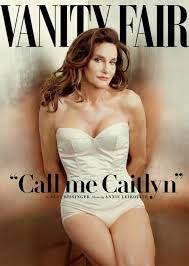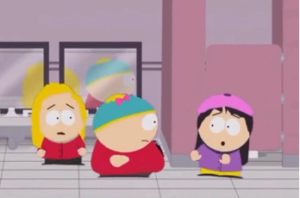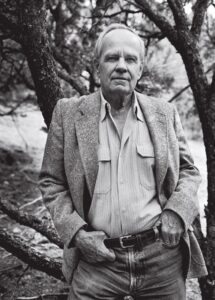Test Your Knowledge of Famous Artists

The topic was promising. The first question was easy. I thought for sure I was going to get a perfect score. I was wrong.
Click here to try your hand at it.
Test Your Knowledge of Famous Artists

The topic was promising. The first question was easy. I thought for sure I was going to get a perfect score. I was wrong.
Click here to try your hand at it.
JF sent this as an example of how Bud Light promoted itself “before they got caught up in the culture wars.” Click here.
Memories of Maiduguri

“Never shall I forget his deep-throated laughter as he told me that ‘the rascals’ would kill him.” – Taki
DZ wanted to travel to Maiduguri in Nigeria, where his father was a visiting scholar at the university. I agreed to go with him, knowing nothing about Maiduguri and very little about Nigeria, except that it was an English-speaking country, not a Francophone country like Chad, where we were stationed as Peace Corps volunteers.
The first leg of the journey was by bush taxi – a smallish van with benches bolted on either side of the cabin. The big advantage of bush taxis was the price. Fares were less than a dollar each, which made them the usual choice for Chadians and Peace Corps volunteers.
To eke out a profit, bush taxis did not operate by a schedule, but idled at the station for as long as it took to fill the cabin.
Chadian-full was different from Fort Lauderdale-full, or even New York City-full. Bush-taxi-full was 20 humans, each with boxes and bags, plus at least a dozen chickens and one or two goats. And that was just the contents of the cabin. Tied to the roof rack, there was likely to be a six-foot-high mountain of bed frames and firewood and farm tools and motors and bags of grain… and who knows what else!
DZ and I had woken up at the crack of dawn and were at the station by about 6:00 a.m. By 8:00, the van was full. The driver put the transmission into gear, and the van began coughing, sputtering, and finally hobbling and clanking down the dirt road.
Moments later, we heard shouting outside in some tribal language. The driver stopped the van, and his assistant went to the back and opened the door. There was an elderly couple that wanted to get in. The assistant yelled at us all in yet another language, in response to which our fellow passengers began shuffling themselves around in an effort to make room for the additional passengers. But even after another battery of verbal abuse from the assistant, there was, at best, only six inches of bench space available to accommodate them.
The assistant shook his head in disappointment and yelled something to the driver, who then put the transmission back in gear. “Finally,” I thought to myself. “We are on our way.”
The driver floored the gas pedal and the van bolted forward. A second later, he slammed on the brakes, hurling us violently backward and crushed up against one another, but freeing up the bench space the assistant needed. He shoved the old couple on board and shut the door behind them.
That was “Part I of Our Adventure to Maiduguri.” The rest of the trip was more exciting and even stranger, which I will save that for another time. I’m telling you this now because I happen to have read this morning a reminiscence from one of my favorite reminiscers, Theodore Dalrymple (of Taki’s Magazine), whom I’ve recommended to you before.
Dalrymple’s essay is about some of his memories of this very same city of Maiduguri in the early 1980s, just a few years after DZ and I traveled there.
Africa is a continent unlike any other. Its landscapes, varied as they are, do not remind me of anyplace else I’ve ever been. That’s also true of its peoples and their cultures. They are not like any others in the world. And it (sub-Saharan Africa, that is) has changed very little since I was first there 40 years ago. It exists in its own time capsule. It still feels undiscovered to me.
Chad was not an easy place to live in – especially for a 25-year-old American who had never traveled overseas. It was not just different. Everything, from brushing your teeth to giving a lecture at the local university, felt like it had to be reinvented from square one. I managed well enough, but many others didn’t. A fair percentage of the Peace Corps volunteers that went to Chad while I was there returned to the States before their tour was up.
And I’ll bet that, apart from a handful of large, relatively wealthy cities like Marrakesh, Algiers, and Cairo in the north or Johannesburg and Cape Town in the south, that strangeness and difficulty is still true for 90% of sub-Saharan Africa today.
Notwithstanding the uncomfortable differences, there are some things I remember about Africa that made the experience of living there worthwhile. One of those things was a depth of intimacy among male friends that did not exist in the States. Another thing that impressed me deeply, which Dalrymple writes about in the linked-to essay below, was the capacity of Africans to joke about the vicissitudes of life… punctuated by their huge, bellowing, and contagious laughter.
Click here to enjoy Dalrymple doing his thing!
Everyone Wants to Be a Victim in America Today – Even Skinny People!

It’s no longer cool to win a gold medal or graduate cum laude or start a successful business or climb Mt. Kilimanjaro. In today’s America, the only sure way to get attention is to figure out and complain about some way you have been victimized.
Meghan Markle is doing it. So is Oprah Winfrey. In a recent New York Times article, I discovered a new way to climb aboard the victim train: Become a victim of “skinny shaming”!
The article, written by Gina Kolata, tells several stories of women that took Wegovy, one of a new class of drugs prescribed for obesity. One of those women, Katarra Ewing of Detroit, lost 90 pounds on the drug.
But there was an unintended and unexpected side effect: Many of her longtime friends, she said, abandoned her! Apparently, they preferred the 90-pound-plumper version. “Only my genuine friends are left,” she complained, “and that’s a very small number.”
Click here.
The COVID Response: What We Got Wrong
The NYT’s COVID Tracker Is Back!
It seems that the NYT has resumed making updates to its COVID tracking pages. CA forwarded the first one to me, showing that there are still 684 deaths per week attributed to the virus.
But remember… that number is still based on the CDC’s original mandate that if someone dies with COVID, they are to be officially recorded as dying from COVID. Which means that people that were obese and/or diabetic and/or sick with cancer who tested positive for COVID when they were checked into the hospital are reported as having died from COVID. It also means – in theory, at least – that someone pulled out of a motorcycle accident with severe internal bleeding could be counted as yet another COVID death.
I know that that sounds preposterous. I’m sure you are thinking I’ve lost my mind. But it was the protocol adopted by the CDC.
Since this crazy protocol first came out, I’ve been looking for something to tell me that it was a hoax. I’ve found nothing. What I’ve found instead is several reports that tried to estimate by what degree it has exaggerated the COVID death count. According to those calculations, making up for the double-counting, the CDC reported count is a huge overstatement. If reported correctly, it would be reduced by about 70%. That means the weekly death count is about 200, not +/- 700 as shown in the NYT’s COVID Tracker.
That’s not nothing. It’s 10,000 deaths a year. But to put it in perspective, it’s about one-third the annual death count from the flu.
More on the death of Cormac McCarthy:
From AS…
“Last night, in honor of Cormac McCarthy’s passing, D and I watched The Road. We both read the book years ago and didn’t remember most of the details. As the movie rolled, my memories of the book slowly came back.
“It was so well done, and the acting was off the charts. Robert Duvall had a small part, but, as usual, his part was memorable. Somehow, the director made the movie darker than the book.
“I know you like movies that make you think and have questions that spill over to the next day. I’m glad I saw this one. It was terrific. But I prefer lighter movies. When it ended, I felt like taking my own life.”
My Response: I hear you. I have seen The Road and read the book. And I agree. The movie was a bit darker than the book.
As for “lighter” movies, I’m not against them. I watch my share. But I have to admit: When it comes to all forms of entertainment and amusement, I try to keep my consumption as healthy as I can bear. I do that not because I want people to look up to me (although I do), but because I believe 100% that the value one gets from entertainment is directly correlated to the mental and emotional work one must do to consume it.
And because, as everyone who knows me knows, I take enormous spectrum-like pleasure in sorting and arranging every aspect of my conscious existence, I’ve developed an informal (okay, I’m lying – an anally retentive) hierarchy for video entertainment that I use to decide what sort of movie to watch.
At the top of the list is, of course, big, dark, idea-laden dramas like Schindler’s List that have both tremendous verticality and horizontality, and that change me in some significant and lasting way.
When I don’t have quite enough mental and emotional strength for those, I opt for beautifully made and emotionally touching movies – domestic dramas, historical romances, lyrical adventures, etc. – that are smart and well photographed so that they leave me feeling like I’ve somehow raised my personal humanity somehow, even if it only lasts a day or two. (For my taste, the best of these are made in China and Japan. Shoplifters, for example.)
When I feel too lazy and/or sloppy for those, I go for spoofs like Monty Python’s Life of Brian or comic family dramas – particularly Indian domestic comedies like Monsoon Wedding.
And sometimes, not often, but sometimes, I have an appetite for junk. On the recommendation of MM recently, I watchedDirty Grandpa with Robert De Niro. I could give you a dozen ways Dirty Grandpa is juvenile and pandering, but I laughed out loud at least a half-dozen times.
From DF…
“You did a great job on your piece on McCarthy – better than the obits I’ve been reading in the big publications.”
He says it took him 20 years of practice to get to this point. I believe it!
Click here.
Father’s Day, Mother’s Day: What Does It Mean Anymore?

This weekend was Father’s Day. The Ford-Fitzgerald clan has nine fathers – five in my generation and four in the following one, of which three, along with spouses and offspring, were together at the Swamp House on Sunday.
Father’s Day was never a big deal for us. Is it for anyone? Someone told me that they saw a list of American holidays ordered by some measure of importance and Father’s Day was number 40, behind Arbor Day. (What is Arbor Day?)
If it weren’t for my mother, Father’s Day would have gone unnoticed in my childhood home. The day before Father’s Day, she had us make cards for him. I was considered a good scribbler back then, and I took my reputation to heart. My cards were always little masterpieces – part surrealist and part COBRA. I’d present the card to him with great expectations. He’d pick his head up from the book he was reading, pat me on the head, and then return to his studies.
As for me, in my adulthood, I don’t have anything to report in terms of Father’s Day memories. Numbers One and Two Sons face-timed me from California. And Number Three Son was with us, along with his family, at a brunch on the Avenue.
When our boys were toddlers and young children, they got most of what they needed – love and constant correction – from their mother. I played the Ozzie Nelson role, going to work early and coming home just before dinner. During the week, I saw them briefly. Maybe twice a day. Time with father was reserved for weekends.
That ratio of maternal/paternal time and attention in those early years seemed to have worked well. But when the boys moved into their teenage years, my duties became more regular and more serious. I had to play, as well as I could, the initiating father in all things manly. Like not whining and being brave and treating smaller children gently.
When they got into their gangly, testosterone-fueled years, they began testing the authority of their mother. That’s when I felt the need to step in and give them the “do-that-again-and-you’ll-get-the-back-of-me-hand.” (I never had to give them the back of my hand. Notwithstanding their boyish instincts, they were basically good and loving kids. But they could never be sure if my threats were serious.)
I’m happy to report that all three of our boys grew up as well as we could have hoped. By that, I mean they have become financially and emotionally independent adults that speak courteously to strangers, are generous with their time and money, and show kindness when it is called for.
I don’t dispute that K earned and deserves 80% of the credit for their successful maturation. But I claim 20% for myself as a father that was there when he was really needed.
And fathers are needed. Countless studies show that children that grow up without fathers are severely disadvantaged in terms of how they perform in life. They end up quitting school earlier, having children of their own younger, earning less money, committing more crimes, having a higher incidence of suicide, and dying earlier.
But that may not be enough. Last Thursday, I woke up listening to a PBS radio special about Father’s Day. PBS, which, as you know, is supported by taxes and listener contributions, decided to add a fun twist to this special by making the segment an interview with a transgender father.
Kayden Coleman is the transgender father of two daughters. His PBS interview was about what it was like fathering two daughters as a transgendered man that grew up as a biological female. It turns out that it is great. As he explained to the host, transgender fathers are actually better at fathering than cis-gender fathers because they understand what it is like to menstruate.
Alas.
But I shouldn’t complain. Cis-gendered women have it much worse. They are rapidly being bettered by transgendered women in just about every form of human competition, including sports and martial arts and beauty pageants and chess.
It’s no wonder that in 2015 the undisputed Woman of the Year was Caitlyn Jenner, who was celebrated on at least a dozen magazine and newspaper front pages. Or that last October, President Biden invited Dylan Mulvaney to the White House to celebrate her as one of America’s most popular female social media stars.
Never mind.
Back to Delray Beach and the Ford-Fitzgerald homestead…
As long as I can remember, there’s been a family debate about a point of Mother’s Day and Father’s Day decorum. The issue: Who is supposed to plan the celebration and buy the gift? The spouses or the children? We decided it was the responsibility of the children.
In our early years of marriage, K and I didn’t celebrate our days of recognition because we agreed that it was each of our responsibilities on Father’s Day and Mother’s Day to celebrate our own parents’ days, not each other’s.
Now that our kids are grown, we feel it’s up to them to celebrate our days. We don’t expect much. But we expect at least a phone call. So, that’s family policy. We eschew responsibility for the celebration. It’s up to the kids. Although I’m pretty sure that K reminds them. And so do I.
I think that’s fair. But still, just to be safe, I get K flowers.
Speaking of Fathers Having Babies…

Check out these two short clips.
The first comes from Monty Python’s Life of Brian, which I saw again last week. It had me screaming. One of the best moments targeted this issue of gender roles for parents. I’m talking about the scene where Stan announces that he wants to have babies. (In 1979, of course, when Life of Brian came out, the idea that men could have babies was universally considered ridiculous.)
Click here.
And this, more or less, is the same skit. But this one was produced more recently. It’s a bit from South Park. Click here.
Sleeping Man Shoots Himself in Self-Defense
I’m trying to decide what to make of this story… or what the Illinois DA was thinking.
A 62-year-old man is facing firearms charges in Illinois after authorities say he accidentally shot himself in the leg in his sleep – while dreaming that he was defending himself against an “intruder” in his home.
Click here.
The Difference Between an Independent Musician and an Industry-Backed One
This clip is a little outdated. (The rankings he quotes are from several months ago.) But the point he makes is a good one. And what he’s doing – promoting his record this way – is very clever.
Click here.
The (Rare) Cormac McCarthy Interviews

As I mentioned in my tribute to Cormac McCarthy in Friday’s issue, he was famously private, and turned down most of the interview requests that came his way. But between 1968 and 1980, when he was starting out, he gave at least 10 interviews about his writing to small local papers in Lexington, KY, and east Tennessee, a region where he lived and had friends. After he won the Pulitzer Prize and the National Book Award, he decided that he’d rather have his work speak for itself, and rarely broke that rule.
In fact, I was able to find just a handful of interviews that he did after 1980 – not only on his writing, but also on his interests in architecture, science, and math.
Click here.
And here.
And here.